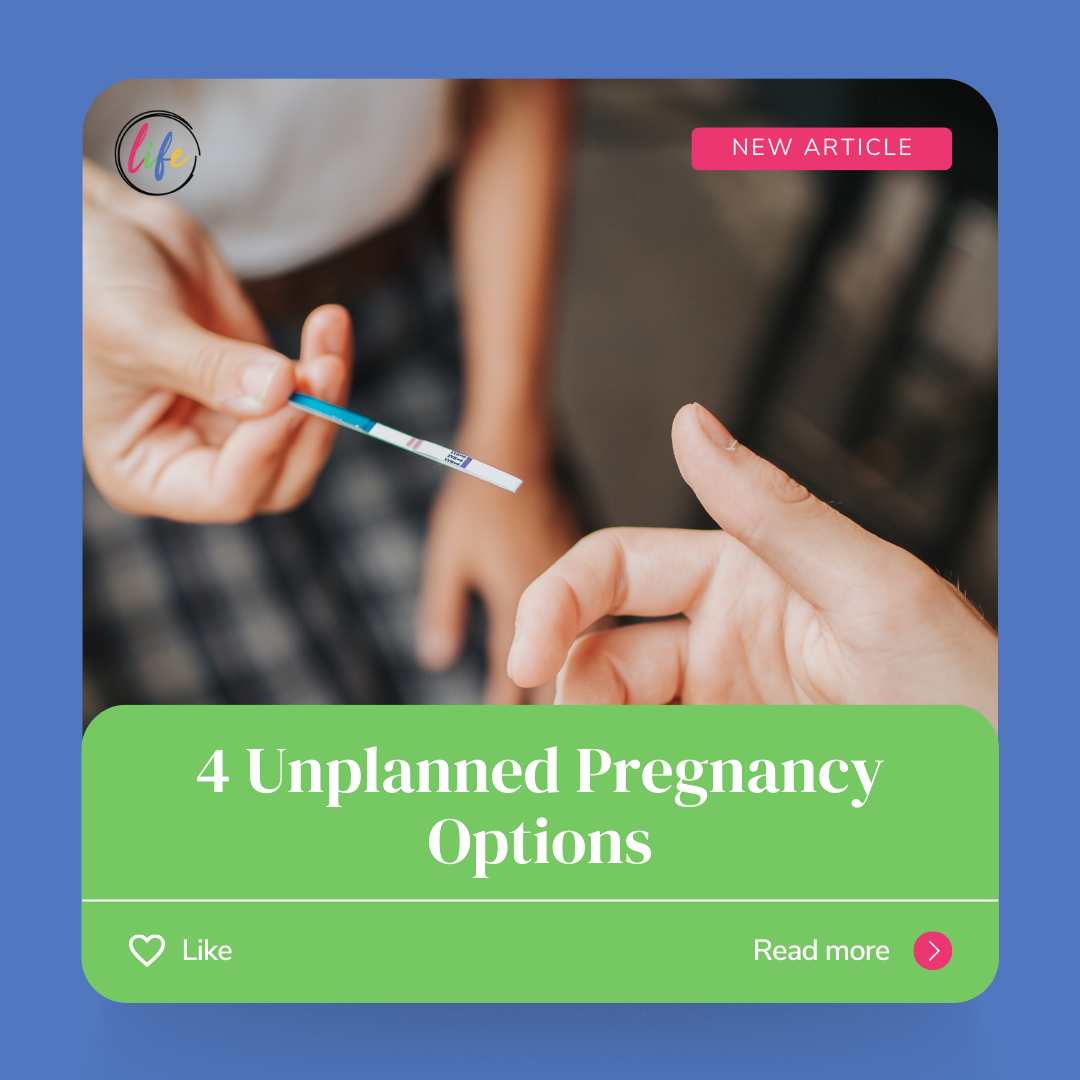
An unplanned pregnancy is financially, physically, and emotionally stressful. Fear often drives women and couples to choose abortion. However, there are safe alternatives to abortion that benefit everyone, including the unborn. Here are 4 unplanned pregnancy options:
Parenting
Once the initial fear and anxiety subside, many women and couples decide they want to raise their babies. For parents raising their children, there are many resources available.
For couples who live together, raising a baby is a team effort. For parents living separately, co-parenting and joint-custody arrangements can be made in and outside of the courtroom. When parents aren’t always seeing eye-to-eye, legal mediation can be pursued to assign financial responsibilities, like child support.
As of 2021, there are approximately 3,000 crisis pregnancy center locations in the U.S. (counting medical mobile units as separate locations). They provide a wide range of pregnancy care and after-birth care. Pregnancy centers now routinely provide assistance for 2-3 years following the birth of a child. These include material support like diapers and formula, along with assistance with school and training plans, parenting classes, etc. Additionally, there are many government-funded programs, churches, and other social service agencies providing assistance. For example, Texas has a generous Alternatives to Abortion fund.
Whether you’re co-parenting or raising a child on your own, you are not alone in this. Click here to learn more about government assistance.
Open Adoption
For women and couples who do not feel prepared to raise a child, there are alternatives to parenting, such as adoption. Experts estimate that there are 1-2 million couples waiting to adopt each year — so there is no shortage of loving homes!
Given their circumstances or abilities, many biological parents know that adoption is the best option for their children but would still like to have a relationship with their children after the adoption has been finalized. This is why open adoptions are a popular alternative!
Open adoption allows the biological parents to contact or visit the child and their adoptive parents. Many adoptive parents encourage their children to maintain a relationship with their biological parents. Semi-open adoption is also an option if the biological and adoptive parents would prefer limited communication and visits. In semi-open adoption, communication is permitted but typically goes through the adoption agency. Sometimes adoptive parents will share photos and videos of the child.
Closed Adoption
While some biological parents find open adoption easier to cope with, others prefer closed adoption for privacy purposes. Closed adoption prevents future contact between the adoptive child and the biological parents. Closed adoptions are confidential. Therefore, the biological parents do not know the identity of the adoptive parents and vice versa.
 Safe Haven Baby Boxes
Safe Haven Baby Boxes
When women in bad circumstances find themselves pregnant, they may experience fear, shame, doubt, etc. These intense emotions can cause them to make impulsive last-minute decisions, such as illegally abandoning their newborn babies. This occurs more often than you’d think.
According to the National Safe Haven Alliance, “in 2021, 31 babies were placed in dumpsters, found in backpacks, or discarded in other dangerous locations. 22 of these infants were found deceased.” This devastating reality is the reason we now have Safe Haven Baby Boxes.
Safe Haven Baby Boxes are located at various fire stations and hospitals across the nation. These baby boxes are safety devices that allow mothers in crisis to safely, securely, and anonymously surrender their newborn if they are unable to care for the child. You simply open the exterior door, place the newborn inside the baby box, and close the door. The door automatically locks from the outside, which triggers a silent alarm that notifies medical personnel there is a baby in the box. Medical personnel can retrieve the baby through the interior door.
The organization also has a national 24-hour hotline for mothers in crisis, where they can receive counseling and assistance free of charge. Click here to learn more.
Learn more about the various stages of fetal development (conception, first, second, and third trimester) and don’t forget to follow us on social media (Facebook, Instagram, and TikTok).